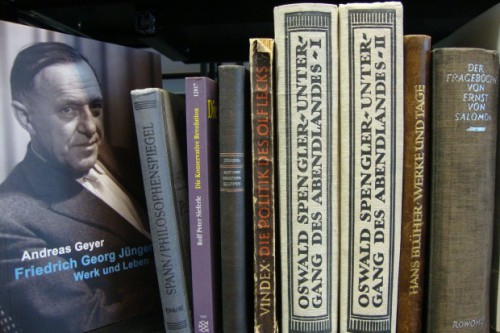
Ma découverte de la « Révolution conservatrice »
Entretien avec Thierry Martin (Université Paris IV)
- Quand et dans quels cadres avez-vous découvert le courant de pensée révolutionnaire-conservateur allemand?
La découverte de la « révolution conservatrice », ou plutôt d’éléments constitutifs ou annonciateurs de celle-ci, a été, chez moi, un processus lent. Jeunes adolescents, nous étions très confusément conscients que le « système » ne fonctionnait plus. Se juxtaposaient, à cette époque, entre 1969 et 1972, des résidus que l’on nous demandait de vénérer et des innovations, mai 68 oblige, qui nous paraissaient totalement farfelues ou incongrues. Nous étions à la chasse d’auteurs alternatifs, sans trop savoir à quels saints nous vouer. Un professeur de français me conseille Un testament espagnol de Koestler. Le professeur de latin, l’Abbé Simon Hauwaert, nous baigne dans une atmosphère de culture classique, d’abord avec le De bello gallico. Hauwaert était disciple des disciples du Cardinal Mercier, grand défenseur de la culture gréco-latine, ami de Coubertin et féru de l’idéal olympique, promoteur d’un scoutisme viril et audacieux (celui qui a séduit Hergé), admirateur de Maurras. Toute cette culture classique, décriée par les soixante-huitards, s’est lentement décantée dans nos cerveaux, sans véritables références intermédiaires, sans passerelles commodes, forgées par des journalistes talentueux ou de bons vulgarisateurs. Hauwaert, bien qu’ecclésiastique, ne jurait que par la culture hellénique et la tradition politique romaine. Dans l’âme, il était un païen antique. Finalement, il ne s’en cachait guère. L’année suivante, il nous emmène en Turquie, pour visiter les sites archéologiques et les musées. En 1973, ce sera la Grèce. Delphes et Olympie en particulier. Ces voyages ont été déterminants dans l’éclosion de mon imaginaire.
Tout naturellement, s’est ajouté à cela le tropisme germanique, qui est partout présent, en filigrane, en Belgique : en Flandre parce que les intellectuels, même simples bacheliers, comprenaient aisément l’allemand à l’époque (ce n’est plus le cas) ; en Wallonie, l’Allemagne est présente comme un fantôme dans la littérature, chez Maeterlinck (dont l’entomologie et le mysticisme naturaliste ont dû sûrement inspirer Jünger), chez Compère et bien d’autres, comme l’ex-germanophobe Pierre Nothomb (ancêtre d’Amélie Nothomb) qui imagine une petite principauté idéale dans l’Eifel, la principauté d’Olzheim, incarnant la fidélité au Saint-Empire catholique d’ottonienne mémoire. Fin des années 60, c’est la fascination générale pour le miracle économique de la RFA, pour la technique automobile et pour l’électro-ménager : le Belge moyen ne jure que par Volkswagen, Mercédès, Miele, Zeiss Ikon, Telefunken et j’en passe. Ce tropisme allemand, encore honteux mais bien présent dans les propos de table en famille, conduit notre brochette de copains à se poser des questions sur ce pays que l’on a cherché à nous faire détester pour les siècles des siècles : que se passe-t-il au-delà des Fagnes et de l’Eifel ? Je n’avais fait, enfant, que deux voyages au-delà de la frontière orientale de la Belgique, à Aix-la-Chapelle et à Monschau. A treize ans, je suis allé au zoo en plein air de Tüddern. C’était un peu court pour poser un jugement un tant soit peu cohérent. Mais, un jour, l’Abbé prononce le nom de Nietzsche, rappelant certes, avec un sourire autant complice que moqueur, qu’il était le pire des mécréants mais aussi, ce qui le sauvait, un excellent helléniste. Son but ? Je ne crois pas le trahir (à titre posthume) en disant qu’il suggérait des auteurs sulfureux pour nous inciter à les lire, même en cachette. Il fera de même avec le Satyricon de Pétrone.
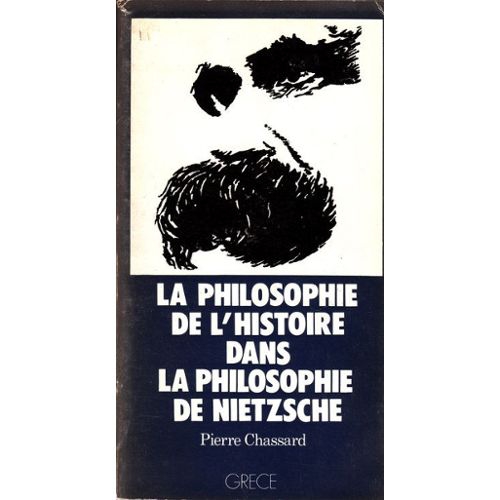
Me voilà parti sur Nietzsche. Je glane quelques bribes sur le philosophe. Et j’essaie de lire La généalogie de la morale et L’Antéchrist, que je ne relirai à fond qu’à dix-neuf ans, en parallèle au travail de Pierre Chassard, édité par le G.R.E.C.E. (cf. infra). Plus tard, vous le devinez bien, je reviendrai inlassablement vers ces deux livres essentiels, non pas parce qu’ils sont sulfureux et emplis de mécréance mais parce qu’ils jettent les bases d’une volonté de démasquer ce qui se dissimule derrière des idées ronflantes, en apparence généreuses et doucereuses, pour tisser des dispositifs de pouvoir bien plus pervers et subtils que ceux qu’ils dénoncent ou que les résidus du passé qu’ils fustigent comme des vieilleries. Pour nous, gamins de Bruxelles, cette virulence de Nietzsche contre le christianisme est une attitude à imiter pour fustiger le démocratisme chrétien belge et ses médiocrités, de même que l’hypocrisie de la bien-pensance bourgeoise et catholique, celle, disait l’Abbé, « des rombières qui tricotent des bas pour les pauvres et la réputation de leur prochain ». Le monde extérieur, le monde établi, celui du pouvoir, nous apparaissait d’un coup comme un fatras à rejeter, à moquer (avec une méchanceté d’adolescent). De ce fatras, qui fait écran, entre la vérité (grecque) et nos petites personnes, il convient de ne rien conserver mais de tout fracasser à coups de marteau. Afin de retrouver, derrière, les lumineuses vérités helléniques et les fondements mythologiques des anciennes cultures européennes. Les coups de marteau nietzschéens forçaient le dévoilement de la vérité et de l’Etre. Autre idée conservatrice et non révolutionnaire de l’Abbé : nous inciter à replonger dans le monde gréco-latin (il créera à cet effet un cours de « culture grecque ») et nous incitera à étudier la mythologie celtique (c’est ainsi que j’ai lu Markale) et les anciennes littératures germaniques (que j’ai découvertes par un ouvrage de l’Argentin Jorge-Luis Borges). L’Abbé avait incité un jeune germaniste parmi nos professeurs, un certain Buelens, venu donner cours de néerlandais, à nous introduire à ces anciennes littératures, ce qu’il fit avec brio.
Le temps passe : nous découvrons successivement la revue Nouvelle école et le G.R.E.C.E. entre août 1973 (pendant notre séjour à Athènes et notre visite à Delphes) et juin 1974, date de notre première prise de contact avec Dulière, Vanderperre et Hupin, alors militants du G.R.E.C.E. à Bruxelles. A l’école, le Frère Lucien Verbruggen avait pris le relais de l’Abbé Hauwaert et transformé son cours de religion en un cours de philosophie, dépourvu de toutes bondieuseries : Platon, Aristote, Kant, Marx, Freud, Heidegger étaient tous au programme. En fin de terminale, deux dissertations, l’une sur la pensée de Heidegger (« Le langage est la maison de l’Etre ») et l’autre sur Marcuse (« L’homme unidimensionnel »). Le professeur de français Rodolphe Brouwers nous immerge dans les grands classiques (Proust, Gide, Céline et son monologue intérieur) mais aussi dans une littérature plus récente (Alain Robbe-Grillet, Marguerite Duras). Nous sortons donc de nos humanités secondaires non dépourvus de bagage littéraire et philosophique. En latin, Hauwaert et son successeur Salmon nous avaient fait traduire les classiques au programme dont Salluste, Tacite et Tite-Live, sans oublier Cicéron mais, en plus, il nous fallait rédiger chaque année un travail d’approfondissement sur un auteur : pour moi et mon co-équipier Leyssens, ce furent Lucrèce, Pline et Plaute.
En septembre 1974 commence pour nous la vie universitaire. Pour moi, deux ans de philologie germanique et quatre ans de haute école des traducteurs-interprètes pour les langues allemande et anglaise. C’est aussi l’époque où Bernard Garcet, qui fut animateur de la section étudiante de Louvain du mouvement « Jeune Europe » de Jean Thiriart (alors disparu de la scène politique), nous apprend à résumer des ouvrages et à les présenter devant un public restreint. Garcet est exigeant, au-delà des exigences restreintes que réclamerait par exemple l’école des cadres d’un parti politique. Pour lui, avoir des opinions contestatrices, c’est bien, les exprimer de manière structurée et sans affects passionnels, sans dérives émotionnelles, c’est mieux et cela peut servir dans toutes les circonstances de la vie : au fil des mois, nous avons été entraînés à résumer Louis Rougier, Jules Monnerot, Julien Freund (sur Vilfredo Pareto et Max Weber), Karl Mannheim, James Burnham, Jean Baechler, Carl Schmitt (avec les rares documents dont nous disposions à l’époque !), etc. Cette formation s’est étalée sur cinq bonnes années. Elle fut déterminante.
En 1974-1975, le cours de philosophie d’Anne-Marie Dillens, dispensé aux philologues et aux juristes dans le grand auditorium du Boulevard du Jardin Botanique à Bruxelles, est profondément ennuyeux. La dame pontifiait et jargonnait, nous entraînait dans le labyrinthe opaque et gris de sa pensée confuse et désordonnée ; elle ponctuait sa logorrhée de grimaces (de la maxillaire inférieure) et d’une gestuelle du plus haut comique. En fait, il y avait la philosophie servie par le régime dont elle était l’instrument sans nul doute à son corps défendant : une soupe insipide qui déroutait, désorientait. Et la nôtre qui disait les choses, les nommait, désignait les dangers et l’ennemi. Pour préparer l’examen, je commets une première boulette de taille, qui me vaudra un échec cinglant : au lieu de tenter de déchiffrer le pesant salmigondis de Dame Dillens, je lis à fond le travail de Pierre Chassard, édité par le G.R.E.C.E. : La philosophie de l’histoire dans la philosophie de Nietzsche. Pour chaque citation de Chassard, je consulte un ouvrage de Nietzsche, en version originale allemande ou en une traduction quelconque. L’année 1975 fut donc, pour moi, une immersion totale dans la pensée de Nietzsche. Chassard a une approche claire de Nietzsche, issue de la tradition nietzschéenne française du début du 20ème siècle. Dans l’ouvrage qu’il édite au G.R.E.C.E., il insiste principalement sur l’anti-providentialisme du philosophe de Sils-Maria. L’histoire est là, avec son tissu de contradictions et de tragédies : inutile de masquer ce théâtre souvent désagréable par des discours-décors, de promettre des lendemains qui chantent car ce ne sont là que des escroqueries, colportées par des êtres bas, avides d’exercer du pouvoir (sans risques).

Le cours de littérature allemande était donné par Paul Lebeau (1908-1982), écrivain flamand qui avait connu ses heures de gloire dans les années 1950. Il appartenait au cercle des « scriptores catholici » et le choc des visions du monde et de l’homme qu’il décrivait dans son ouvrage romanesque le plus célèbre, Xanthippe (1959), dédié à la femme de Socrate, opposait un rationalisme purement cérébral, celui du philosophe bientôt condamné à boire la cigüe, et le vitalisme de son épouse, non dépourvu de subjectivité débridée et même d’animalité. Chez Lebeau, l’un des thèmes centraux était le conflit entre spiritualité et sexualité. Le catholicisme de Lebeau était donc un catholicisme qui privilégiait la spiritualité mais constatait l’ « incontournabilité » des sens et des instincts. Cette problématique était commune dans les pays germaniques entre les années 1890 et la fin des années 1940. Pendant notre année académique, Lebeau avait choisi de nous promener pendant de longs mois dans le Faust de Goethe où il est dit « Grise est toute théorie, vert est l’Arbre de la Vie ». Une certaine complicité flamande me liait à Lebeau, qui ne craignait pas, à ses heures, d’égratigner les canons du « politiquement correct » avant la lettre. Il aimait citer Spengler et méditer sur la notion de « déclin ».
L’année académique 1974-1975 est aussi celle de l’approfondissement de Spengler, découvert lorsque nous avions seize ans, dans L’Homme et la technique, lu pendant quelques heures au fond d’un trou de sable, par un temps vraiment frisquet, dans les dunes à Coq-sur-Mer, la plage flamande favorite d’Einstein, d’Hergé et de votre serviteur. D’autres lectures, entre 1974 et 1979, conforteront ma façon de voir le monde : le livre du professeur anglais Barnard sur Herder, Herder lui-même et les introductions à la version bilingue d’Aubier-Montaigne dues à la plume du germaniste français Max Rouché. Ensuite le panorama du conservatisme antiautoritaire de l’Américain Peter Viereck (1916-2006) m’introduit à une première approche comparative, et très didactique, de la question. Viereck est aussi celui qui, dès 1939, avait lancé le terme de « métapolitique » dans le langage académique américain.
En 1976, paraît le travail de Louis Dupeux (1931-2002), Stratégie communiste et dynamique conservatrice. Essai sur les différents sens de l'expression « National-bolchevisme » en Allemagne, sous la République de Weimar (1919-1933), que nous dévorons suite à un autre classique dans le même domaine, celui de Jean-Pierre Faye, Langages totalitaires (1972). L’idée était, bien sûr, de dépasser les clivages gauche/droite, socialisme/libéralisme, etc., en puisant dans des corpus qui faisaient la synthèse de toutes les idéologies, autrement vues comme antagonistes, pour recréer une harmonie viable au sein des pays européens. Le deuxième objectif de ces lectures était aussi de surmonter la dépendance à l’endroit des Etats-Unis. Pour nous, l’événement déclencheur de notre anti-américanisme fut le fameux « marché du siècle » de 1975, où les Etats-Unis imposent aux pays du Bénélux et de la Scandinavie, membres de l’OTAN, le chasseur F-16 plutôt qu’un Saab suédois ou un Mirage français. L’Europe nous apparait alors très cruellement dépendante et inefficace. Par ailleurs, comme je l’ai déjà maintes fois souligné, l’alliance de facto entre la Chine maoïste et les Etats-Unis de Nixon et de Kissinger fait que la Chine n’est plus perçue comme un allié de revers pour harceler le duopole des superpuissances né à Yalta mais comme une complice de Washington qui contribue à encercler et l’Europe occidentale et l’URSS. Du coup surgit la nécessité de développer un discours différent du précédent : non plus critiquer et rejeter les systèmes américaniste et soviétique mais rejeter l’américanisme dans toutes ses facettes et chercher un modus vivendi avec la Russie soviétique qui, à l’époque, critique le laxisme et la déliquescence de l’Occident (cette démarche sera partagée par Mohler, Parvulesco, Thiriart, Faye et bien d’autres). L’ouvrage d’Alexander Yanov, The Russian New Right, publié en Californie, montre comment, en URSS, s’articulait, à l’époque, une dialectique entre régimistes occidentalisés (via le matérialisme marxiste), régimistes russophiles (renouant avec la spécificité russe), dissidents occidentalistes (Sakharov par exemple et la tradition libérale) et dissidents russophiles (à la remorque des œuvres monumentales de Soljénitsyne). Yanov, occidentaliste, prônait une réconciliation entre régimistes et dissidents occidentalistes et craignait par-dessus tout une alliance des régimistes et des dissidents russophiles. L’objectif était donc de proposer 1) une diplomatie pareille à celle des « nationaux-bolcheviques » de la République de Weimar, impliquant un abandon de l’O.T.A.N. et de toute russophobie ; 2) une économie solidariste non libérale mais non outrancièrement soviétisée (aussi inspirée par le gaullisme des années 1960 préconisant la participation et l’intéressement) ; 3) un discours « fusionniste » et populiste appelé à supplanter le démocratisme-chrétien et la sociale-démocratie corrompus de Belgique, d’Allemagne, d’Espagne (le franquisme avait vécu, depuis la mort du Caudillo) et d’Italie. Pour la France, nous rêvions d’un retour à ce gaullisme des années 1960, de le compléter, de le parachever, contre le détricotage à l’œuvre depuis Pompidou, détricotage qu’Eric Zemmour a appelé le « suicide de la France » dans un ouvrage qui a bétonné sa célébrité.
En 1977, nous faisons, sous la houlette du Prof. Albert Defrance un voyage à Berlin, dans le cadre des activités suggérées par le D.A.A.D. (Deutscher Akademischer Austauschdienst). J’y découvre, dans une librairie du Kurfürstendamm, l’ouvrage fondamental de Karl-Otto Schüddekopf Linke Leute von Rechts, qui me permet de compléter les arguments de Dupeux et d’illustrer les faits qu’il avançait dans sa thèse. En 1978, nous partons, toujours par l’intermédiaire du D.A.A.D., à Munich où, dès mon arrivée, je vais illico sonner à la porte du Baron Caspar von Schrenck-Notzing, éditeur de Criticon, revue où œuvre Mohler. Je suis reçu avec une amabilité exquise. Et je reviens avec une collection quasi complète de la revue. J’avais lu Von rechts gesehen de Mohler où, justement, notre auteur plaidait pour un « grand-gaullisme » européen et pour une alliance avec les Etats que les Etats-Unis ostracisaient systématiquement. A Munich, en visitant les librairies, je découvre également la collection de livres collectifs, éditée par Gerd-Klaus Kaltenbrunner, auprès de l’éditeur Herder de Fribourg-en-Brisgau. Un peu plus tard, Mohler publie dans la rubrique « Porträts »de la revue Criticon, deux articles présentant Niekisch et Haushofer, que je résume et adapte en français pour le bulletin du G.R.E.C.E.-Bruxelles, qui est toujours, en cette année 2017, confectionné par Georges Hupin. L’engouement se précise. En 1979, troisième voyage patronné par le D.A.A.D., cette fois à Hambourg et à Lübeck. Depuis notre hôtel du Pferdemarkt, je tisse les liens avec les amis de la ville hanséatique : Peter Plette de la revue Fragmente ; l’inoubliable Heinz-Dieter Hansen, l’animateur de Junges Forum et de la D.E.S.G. (Deutsch-Europäische Studien-Gesellschaft), qui rejoindra, fin des années 1990, le groupe Synergies européennes ; enfin Lothar Penz et Ullrich Behrenz des groupes solidaristes et de la revue Sol. Le courant passe à merveille : je connaissais déjà toutes ces figures grâce à un ouvrage de Günter Bartsch, Revolution von Rechts? Ideologie und Organisation der Neuen Rechten (1975) (cf. aussi : http://robertsteuckers.blogspot.be/2014/12/neo-nationalisme-et-neue-rechte-en-rfa.html ). Cet ouvrage fut déterminant pour mon évolution ultérieure. Il explicitait à merveille les ressorts de cette droite solidariste et ethnopluraliste (au bon sens du terme), grâce à la plume alerte d’un spécialiste du castrisme, du trotskisme, de l’anarchisme allemand et de la droite révolutionnaire. Un jeune ami de notre groupe, le futur slaviste autodidacte Sepp Staelmans de Vouloir, avait d’ailleurs traduit le manifeste de Junges Forum en français à l’usage des Bruxellois intéressés. Bartsch nous fait découvrir la figure d’Hennig Eichberg, décédé en ce mois d’avril 2017, théoricien de l’ethnopluralisme (façon Claude Lévi-Strauss), sociologue critique de tous les aspects de la société de consommation (les automobiles, les barres chocolatées de marques américaines, la commercialisation du sport, etc.). La pensée d’Eichberg était foisonnante : elle semblait faite d’un mercure non canalisé par le tube du thermomètre. Mais combien d’impulsions ne nous a-t-elle pas données ? Même si on ne le suivait pas dans toutes ses quêtes. Eichberg finira par honnir ce qu’il qualifiait d’ « habitus de la droite » et se consacrera entièrement à sa mission de professeur de sociologie du sport dans une université danoise. L’œuvre d’Eichberg, dans tous ses aspects, mérite une étude universitaire approfondie et les derniers articles qu’il avait confiés à Wir selbst, la revue de Siegfried Bublies, sont d’une telle densité idéologique qu’ils appellent à être complétés et actualisés. Cette recherche fébrile d’alternatives dépassant le clivage gauche/droite avait son pendant flamand, que j’esquisse dans mon hommage à l’inclassable Christian Dutoit (http://robertsteuckers.blogspot.be/2016/06/linclassable-christian-dutoit-nous.html ) qui, à la même époque, dirigeait un mouvement ethnosocialiste, ancré dans le paysage des gauches flamandes, le groupe Arbeid.

Deux autres facteurs vont dynamiser ce tâtonnement de notre belle époque estudiantine : ma rencontre, à l’été 1977, avec cette armoire à glace à barbe de Capitaine Haddock que fut l’étudiant en journalisme Alain Derriks. Ce garçon aux origines arlonnaises va organiser chaque semaine une réunion où se tiendra un brain storming effervescent, où nous buvions sec du whisky irlandais ou du Bordeaux et fumions des cigares cubains, offerts généreusement par un membre de la bande. Derriks, qui se proclamait « barrésien », introduit un autre ouvrage fondamental dans le circuit, La droite révolutionnaire (1978) de Zeev Sternhell. Derriks est, à part moi, le seul latiniste chevronné du groupe : nous lisons tous deux l’italien. Plusieurs initiatives italiennes attirent notre attention dont les travaux de Claudio Mutti et Linea, le journal de Pino Rauti, sans oublier Diorama letterario de Marco Tarchi, qui deviendra le chef de file de la nouvelle droite italienne et un féal et obséquieux vicaire d’Alain de Benoist dans la péninsule. La haute tenue de ces publications nous séduit : pour nous, sur le plan théorique, le modèle à suivre, à imiter, est italien et non pas français ou allemand, aussi parce qu’Italiens et Allemands subissent le même spectre partitocratique que le nôtre, alors que les Français disposent encore et toujours du référent gaullien (charismatique et caudilliste) et ne subissent pas des partis aussi inamovibles. Il faut signaler aussi que les germanistes italiens, dans les universités, sont de plus zélés traducteurs que leurs homologues francophones et que la tradition wébérienne en sociologie et en sciences politiques y est plus ancrée qu’en France.
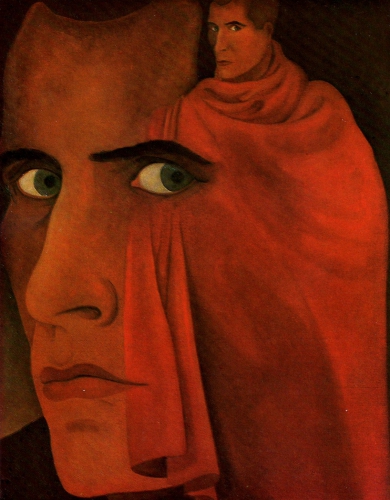
Autre événement majeur au cours de l’année 1978 : ma rencontre avec l’un des derniers représentants du surréalisme belge, Marc. Eemans (1907-1998), éditeur, avant-guerre, de la revue Hermès, consacrée aux spiritualités alternatives, dans lesquelles il fallait se plonger pour se purger de tous les miasmes du monde bourgeois, comme pouvaient le faire imaginer certains écrits d’André Breton lui-même. Eemans avait commencé léniniste (un portrait de Lénine dû à ses pinceaux se trouve à Saint-Pétersbourg), puis surréaliste dans l’équipe bruxelloise, éditeur d’Hermès (où oeuvrait aussi Henri Michaux) et, enfin, nationaliste flamand pour terminer évolien (ce qui est logique, Evola ayant débuté comme dadaïste pour finir traditionaliste). En 1978, Eemans lance le « Centro Studi Evoliani » à Bruxelles et en Flandre, dont nous fîmes tous partie. Eemans ne nous a jamais vraiment détaillé l’aventure surréaliste belge : pour lui, cette coterie était un souvenir (assez douloureux) du passé. Ce n’est que depuis une vingtaine d’années que de solides équipes de chercheurs universitaires se penchent sur les rapports complexes entre idéologies politiques et avant-gardes artistiques en Belgique francophone et néerlandophone. Pourtant Clément Pansaers, Paul van Ostaijen, Ward van Overstraeten, Gabriel Figeys et, bien sûr, Marc. Eemans ont connu des destins étonnants, ne cadrant pas du tout avec les vulgates manichéennes que l’on manipule aujourd’hui pour plonger le public dans l’ignorance, pour lui ôter l’idée de penser en termes complexes et nuancés. Pendant toute son existence après 1945, Marc. Eemans n’a cessé d’essuyer de basses insultes (du moins dans la partie francophone du pays). Aujourd’hui, cette mauvaise comédie se termine et justice sera rendue post mortem à celui qui fut l’un des premiers à publier Heidegger en français, à avoir accueilli les premiers écrits de Corbin sur la pensée persane, à avoir employé Michaux, à avoir tenté de ressusciter les mystiques médiévales flamandes et rhénanes (comme le fait notamment Jacqueline Kelen en France aujourd’hui). Avec Eemans, nous rencontrons Piet Tommissen, spécialiste de Pareto et de Carl Schmitt mais aussi grand amateur d’avant-gardes littéraires et artistiques. Ami de longue date d’Armin Mohler, Tommissen s’intéresse aussi à la révolution conservatrice, toutes tendances confondues, y compris les filons catholiques, où Schmitt puise sa théologie politique (cf. http://robertsteuckers.blogspot.be/2011/10/entretien-avec-robert-steuckers-sur-la.html ; http://robertsteuckers.blogspot.be/2011/10/mes-rencontres-avec-marc-eemans.html ; http://robertsteuckers.blogspot.be/2011/10/mes-rencontres-avec-marc-eemans.html ; http://robertsteuckers.blogspot.be/2011/11/adieu-au-professeur-piet-tommissen.html ).
Les cadres dans lesquels j’ai été initié à des aspects de la révolution conservatrice sont donc multiples et divers. A Bruxelles, il y a certes une antenne du G.R.E.C.E., mais elle est réduite et notre groupe n’entame aucune liaison directe avec la maison-mère parisienne avant fin 1979, début 1980. Je fais certes un voyage à Paris en janvier 1976 et me rend, seul, à un colloque du G.R.E.C.E. en 1977 (où l’anthropologue autrichien Irenäus Eibl-Eibesfeldt a pris la parole). Nous y allons à trois en 1978 (où j’échange quelques brèves paroles avec Giorgio Locchi). Je suis le seul du groupe à participer au colloque de 1979, lorsque les participants sont attaqués par des nervis dans le Palais des Congrès à la Porte Maillot. Notre cercle d’étudiant (une bonne douzaine de petits originaux, pas plus) est autonome. Il y a ensuite le G.R.E.C.E.-Bruxelles (où nous prononcerons des conférences, préparées chez Garcet, sur Arnold Gehlen, la démographie, la notion de peuple, la Grèce antique, la staséologie selon Monnerot). Il y a le « Centro Studi Evoliani » d’Eemans (où je présente un article de Locchi sur la notion d’Empire en présence de l’écrivain prolétarien Pierre Hubermont). Les racines de notre vision du monde doivent être recherchées dans notre curriculum scolaire et universitaire.
- Pouvez-vous, s’ils ont joué un rôle particulier pour vous dans cette découverte, évoquer les rôles de Giorgio Locchi et d’Armin Mohler?
C’est d’abord un article de Giorgio Locchi que j’ai lu, annoté et résumé sur fiches de papier Bristol, dans le premier numéro de Nouvelle école qui m’est tombé entre les mains, le n°19. Cet article concernait Dumézil et l’idéologie trifonctionnelle chez les peuples indo-européens. Je le signale dans l’hommage que je rends à ce philosophe italien (http://robertsteuckers.blogspot.be/search?q=giorgio+locchi ). C’est lui qui provoque le déclic premier qui m’amènera à lire les publications de la mouvance néo-droitiste française. Ensuite, c’est Locchi qui dans le numéro 23 de Nouvelle école (datant de 1973 mais nous ne l’avons acquis que plus tard) résume l’ouvrage de Mohler sur la révolution conservatrice, paru en 1972. Je devrai attendre jusqu’en 1989 pour me procurer la seconde édition. Pendant longtemps donc, la recension de Locchi a été la seule référence en français à l’ouvrage de base de Mohler, sauf une édition italienne ne reprenant que l’introduction de l’auteur, magistrale d’ailleurs, où il insiste sur les « images conductrices » (la traduction est de Locchi), plus mobilisatrices que les discours ou les démonstrations intellectuelles. Créer des images est donc plus important qu’énoncer des théories : Armin Mohler est bien en cela, de par sa formation académique, un historien de l’art. Lors de ma visite chez lui à Munich pendant l’été torride de 1984, j’ai été frappé par l’abondance incroyable d’ouvrages sur l’art et les avant-gardes qui encombrait son appartement. Plus tard, Marc Lüdders me posera la question de savoir quelles influences Mohler avait exercé sur moi. Voici sa question et ma réponse : Quelle a été l’influence d’Armin Mohler sur la vision du monde de la ND ? Que restera-t-il de son approche dans l’avenir ?
Réponse : Votre question est vaste. Très vaste. Elle interpelle la biographie d'Armin Mohler, l'histoire de sa trajectoire personnelle, qu'il a eu maintes fois l'occasion d'évoquer (dans Von rechts gesehen ou dans Der Nasenring). Votre question nécessiterait tout un livre, celui qu'il faudra bien un jour consacrer à cet homme étonnant. Je crois que Karlheinz Weißmann se prépare à cette tâche (note de 2017 : cet ouvrage est aujourd’hui disponible). Il est l'homme le mieux placé et le mieux préparé pour rédiger cette biographie. Première remarque sur les idées de Mohler, et donc sur son influence, c'est qu'il part toujours du vécu existentiel, du particulier et jamais de formules abstraites ou de grandes idées générales. Toute l'oeuvre de Mohler est traversée par ce recours constant au particulier et au vécu, corollaire d'une critique sans appel des idées générales. La préface de sa Konservative Revolution in Deutschland est très claire sur ce chapitre. Pour répondre succinctement à votre question, je dirai que l'influence de Mohler vient surtout des conseils de lecture qu'il a donnés tout au long de sa carrière, notamment dans les colonnes de Criticón et, parfois dans celles de la collection Herderbücherei Initiative, dirigée par Gerd-Klaus Kaltenbrunner, collection qui ne paraît malheureusement plus mais nous laisse une masse impressionnante de documents pour construire et affiner nos positions.

Le réalisme héroïque
L'influence de Mohler s'est exercée sur moi principalement:
1) Parce qu'il nous a enjoint de lire le livre de Walter Hof, Der Weg zum heroischen Realismus. Pessimismus und Nihilismus in der deutschen Literatur von Hamerling bis Benn (Verlag Lothar Rotsch, Bebenhausen, 1974, ISBN 3-87674-015-0). Hof examine deux grandes périodes de transition dans l'histoire littéraire allemande (et européenne): le Sturm und Drang à la fin du XVIIIe et la Révolution Conservatrice au début du XXe. Ces deux époques ont pour point commun que des certitudes s'effondrent. Les esprits clairvoyants de ces époques se rendent compte que les certitudes mortes ne seront jamais remplacées par de nouvelles certitudes, quasi similaires, aussi solides, aussi bien ancrées. Les substantialités d'hier, auxquelles les hommes s'accrochaient, et qu'ils percevaient comme se situant en dehors d'eux, comme des bouées extérieures sûres, disparaissent de l'horizon. Les passéistes nostalgiques estiment que cette disparition conduit au nihilisme. Avec Heidegger, les révolutionnaires conservateurs, qui constatent la faillite de ces substantialités passées, disent: "La substance de l'homme, c'est l'existence". L'homme est effectivement jeté (geworfen) dans le mouvant aléatoire de la vie sur cette planète: il n'a pas d'autre lieu où agir. Les bouées substantialistes de jadis ne servent que ceux qui renoncent à combattre, qui cherchent à échapper au flux furieux des faits interpellants, qui abandonnent l'idée de décider, de trancher, donc d'exister, d'ex-sistare, de sortir des torpeurs quotidiennes, c'est-à-dire de l'inauthenticité. Cette attitude révolutionnaire conservatrice (et heideggerienne) privilégie donc le geste héroïque, l'action concrète qui accepte l'aventureux, le risque (Faye), le voyage dans ce monde immanent sans stabilité consolatrice. Dans cette optique, le "dépassement" n'est pas une volonté d'effacer ce qui est, ce qui est héritage du passé, ce qui dérange ou déplait, mais une utilisation médiate et fonctionnelle de tous les matériaux qui sont là (dans le monde) pour créer des formes: belles, nouvelles, exemplaires, mobilisatrices. Le réalisme héroïque des révolutionnaires conservateurs réside donc tout entier dans la puissance personnelle (personne individuelle ou collective) qui crée des formes, qui donne forme au donné brut (Gottfried Benn). Cette définition du réalisme héroïque par Hof rejoint le "nominalisme", tel que l'a défini Mohler (d'après sa lecture attentive de Georges Sorel) ou la conception "sphérique" de l'histoire, présentée par Mohler dans son célèbre ouvrage de référence sur la "révolution conservatrice" allemande et par Giorgio Locchi dans les colonnes de Nouvelle école. Cette conception "sphérique" du temps et de l'histoire rompt tant avec la conception réactionnaire et restauratrice de l'histoire, qui décrit celle-ci comme cyclique (retour du temps sur lui-même à intervalles réguliers), qu'avec les conceptions linéaires et progressistes (qui voient l'histoire en marche vers un "mieux" selon un schéma vectoriel). Les conceptions cycliques estiment que le retour du même est inéluctable (forme de fatalisme). Les conceptions linéaires dévalorisent le passé, ne respectent aucune des formes forgées dans le passé, et visent un télos, qui sera nécessairement meilleur et indépassable. La conception sphérique de Mohler et Locchi implique qu'il y a des retours, certes, mais jamais des retours de l'identique, et que la sphère du temps peut être impulsée dans une direction plutôt que dans une autre par une volonté forte, une personnalité charismatique, un peuple audacieux. Il n'y a donc ni répétition ni retour aux substances immobiles et handicapantes ni linéarité vectorielle et progressante. La conception sphérique admire le créateur de forme, celui qui bouscule les routines et abat les idoles inutiles, qu'il soit artiste (l'Artisten-Metaphysik de Nietzsche) ou condottiere, thérapeute ou ingénieur. Mohler nous a donc suggéré une anthropologie héroïque concrète, dérivée notamment de son amour de l'art, des formes et de la poésie de Benn. Mais, pour compléter ce réalisme héroïque de Hof et de Mohler, j'ajouterais - aussi pour donner une plus grande profondeur généalogique à la ND - la pensée de l'action, formulée par Maurice Blondel, où la personne est réceptacle de fragments de monde, de sucs vitaux, disait-il, qu'elle doit transformer par l'alchimie particulière qui s'opère en elle, pour poser des actions originales qui développeront et constitueront son être, lui procureront une "accrue originale", une intensité digne d'admiration (L'action, op. cit., p. 467-468).
Le débat réalisme/nominalisme
2) Parce qu'il a lancé le débat réalisme/nominalisme, par le biais d'une disputatio qui l'opposait au catholique Thomas Molnar (Criticón, n°47, 1978). J'ai traduit des fragments de ce débat pour la revue néo-droitiste belge Pour une Renaissance européenne, ensuite Alain de Benoist a repris cette thématique dans Nouvelle école. La Nouvelle Droite a d'ailleurs manié l'étiquette auto-référentielle de "nominalisme" pendant de nombreuses années.
Malheureusement, l'usage du terme "nominalisme" par Alain de Benoist et ses "perroquets" a été trop souvent inapproprié et, surtout, sans référence à Blondel, Sorel et Papini, alors que Mohler, spécialiste de Sorel, connaît très bien le contexte de cette grande époque féconde de remises en questions. La critique catholique de la ND a eu beau jeu de souligner l'insuffisance du "nominalisme" médiéval, source de l'individualisme et du libéralisme ultérieurs, que de Benoist rejetait! La nouvelle droite a ainsi stagné, donnant naissance à un dialogue de sourds, où les uns et les autres ignoraient la position de Blondel, ce catholique, doctrinaire de l'action pour l'action en dehors de tout cadre dogmatique généralisant et contraignant. Le vrai débat sur le nominalisme a été lancé un jour, lors d'une "conférence fédérale des responsables" du GRECE, tenue dans la région lyonnaise. Ce jour-là, Pierre Bérard a critiqué le mauvais usage du terme "nominalisme" dans les rangs de la ND, en appelant à la rescousse les thèses de Louis Dumont qui - je résume très schématiquement - déplore l'érosion des ciments communautaires sous les assauts d'une modernité toute à la fois intellectuelle (l'Aufklärung), industrielle et morale. Il avait raison. Mais en entendant cette brillante argumentation, de Benoist est entré dans une vive colère et a quitté la salle, avec une ostentation assez puérile. Bérard, malgré ses diplômes et ses titres, a été rappelé à l'ordre comme un élève irrévérencieux. Modeste et conciliant, il a accepté, au nom de la discipline (!) de groupe, d'abdiquer son rôle d'universitaire critique, pour laisser le champ libre au journaliste sans qualifications académiques qu'est resté de Benoist. Quelques années plus tard, de Benoist s'alignait toutefois sur les positions de Bérard, et les faisait siennes, mais sans jamais expliquer à ses lecteurs, de manière précise, cette transition importante, entre une première interprétation maladroite du «nominalisme", laissant planer un bon paquet d'ambiguïtés, et une défense des différences (donc des particularités contre les grandes idées générales), impliquant la critique de l'individualisme des Lumières, selon la méthode de Louis Dumont. Pour revenir à l'essentiel de notre entretien, en matière de "nominalisme", Mohler nous enseignait dans son article de Criticón (n°47, op. cit.)
- à nous méfier des conceptions trop rigides de l'«Ordre» ou de la «Nature», comme la scolastique et le rationalisme (cartésien ou non) en avaient véhiculées.
- à sortir de la «mer morte des abstractions» pour entrer dans "les terres fertiles du réel avec ses irrégularités, ses imprévisibilités et ses surprises",
- à concevoir toute altérité comme altérité en soi, comme altérité autonome, au-delà du “Bien” et du “Mal”, toutes démarches qui redonnent à l'homme son caractère aventureux, donc sa dignité. Il y a derrière tous les textes de Mohler cette aspiration insatiable vers une liberté pleine et entière, non pas une liberté qui se détache des choses concrètes pour s'envoler vers des empyrées sans chair et sans épaisseur, mais une liberté de façonner (gestalten, prägen) quelque chose dans l'immense richesse immanente du monde, de l'ici-bas, sans s'occuper des admonestations des philosophes en chambre, toujours dogmatiques et poussiéreux, qu'ils se réclament d'une scolastique médiévale ou d'une modernité raisonnante/ratiocinante.
Le "oui" au réel de Clément Rosset
3) Parce qu'il nous a encouragé à lire Clément Rosset (Criticón, n°67, 1981), que j'avais découvert quelques années plus tôt, à vingt ans, dans L'anti-nature et La logique du pire, deux ouvrages qui m'ont très profondément marqués (pour la petite histoire: je les lisais pendant un cours d'économie politique profondément barbant et stérile, basé sur le pensum de Jacquemain et Tulkens, ce qui m'a valu un zéro à l'examen! Rapidement rattrapé en septembre, où, rêve de tout étudiant, j'ai pu expliquer en toute jovialité à la jeune enseignante, douce et rubiconde, pourquoi ce traité, trop mécanique, m'apparaissait critiquable).
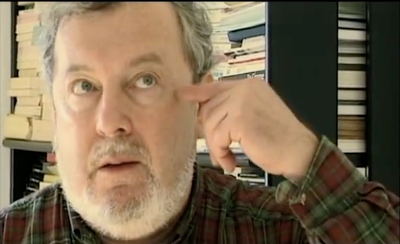
Mohler saluait en Clément Rosset le philosophe qui disait "oui" au réel (Bejahung des Wirklichen), en critiquant sans appel les pensées avançant l'existence d'un arrière-monde, qui aurait précédé ou suivrait le monde tel qu'il est. Dans le portrait qu'il croquait de Rosset, Mohler risquait un souhait: voir cette apologie du réel devenir le fondement philosophique et idéologique d'une "nouvelle droite", enfin capable de se débarrasser de tout ballast incapacitant.
La critique de l'Occident de Richard Faber, catholique de gauche
4) Parce qu'il a attiré mon attention sur l'importance des travaux de Richard Faber, professeur à Berlin et critique acerbe des visions historiques des droites allemandes (cf. Criticón, n°90, 1985; Robert Steuckers, "L'Occident: concept polémique", Orientations, n°5, 1984). Pour Faber, catholique de gauche, il faut universaliser le catholicisme, l'arracher à ses racines romaines, païennes et étatiques. L'exact contraire de notre position, l'exact contraire du catholicisme d'un Carl Schmitt! Mais la documentation exploitée par le professeur berlinois était tellement abondante qu'elle complétait utilement l'oeuvre maîtresse de Mohler, ce qu'il avouait volontiers et sportivement. Le travail de Faber permettait une critique de la notion d'Occident, notamment de la volonté américaine de reprendre le rôle d'une Rome impériale, mettant la vieille Europe sous tutelle. Faber critiquait par là certaines positions d'Erich Voegelin, qui entendait conjuguer ses options catholiques conservatrices, pro-caudillistes, avec la tutelle américaine dans le cadre de l'alliance atlantique. Bien qu'elle n'ait pas du tout la même optique, la critique de l'Occident par Faber est à mettre en parallèle avec celle de Niekisch, afin que nous envisagions, à terme, une nouvelle alliance germano-russe, actualisation du tandem Russie-Prusse à la fin de l'ère napoléonienne.

Le regard de Panayotis Kondylis sur le conservatisme
5) Parce qu'il a encouragé les lecteurs de Criticón, puis, plus tard, de Junge Freiheit, à lire attentivement l'ouvrage de Panayotis Kondylis sur le conservatisme (Criticón, n° 98, 1986; Robert Steuckers, "Il faut instruire le procès des droites!", in Vouloir, n°52-53, 1989, sur P. Kondylis, v. p. 8). L'approche du conservatisme que l'on trouve dans l'oeuvre de Kondylis est foncièrement différente de celle de Mohler, dans le sens où Kondylis estime que la notion même de conservatisme est dépassée parce que la classe des aristocrates propriétaires terriens a disparu ou n'est plus assez puissante et nombreuse pour avoir un poids politique déterminant. Mohler a accepté et assimilé les positions de Kondylis: il reconnaît la critique du penseur grec qui dit que tout conservatisme post-aristocratique n'est qu'un esthétisme (mais pour Mohler, cet "isme" n'est pas une injure!), surtout s'il ne défend pas la societas civilis contre l'emprise dissolvante du libéralisme. Mohler y voit la nécessité, pour toute "droite" non conformiste de défendre le peuple réel, c'est-à-dire la societas civilis contre les institutions fondées sur des abstractions philosophiques donc sur des dénis de liberté. Grand mérite de Kondylis, concluait Mohler: "Son charme intellectuel consiste justement en ceci: il nous présente les concepts et les idées qu'il traite dans leur concrétude historique".
Wolfgang Welsch et la postmodernité
6) Parce qu'il nous a conseillé de lire les ouvrages de Wolfgang Welsch sur la postmodernité (cf. Criticón, n°106, 1988; Robert Steuckers, "La genèse de la postmodernité", Vouloir, n°54-55, 1989). A juste titre, Mohler constate que Wolfgang Welsch donne à ses lecteurs un fil d'Ariane pour se repérer dans la jungle des concepts philosophiques contemporains, souvent assez obscurs et abscons. Mieux, Welsch dégage une interprétation "affirmative" du phénomène postmoderne, qui nous permet de quitter joyeusement et sans regret la prison de la modernité. La postmodernité de Welsch, revue par Mohler, n'est ni une antimodernité véhémente et révoltée ni une transmodernité, mais une autre modernité qui se libère des limites et des rigorismes qu'elle s'est donnés jadis. La postmodernité refuse la "Mathesis Universalis" voulue par Descartes. A la suite de Jean-François Lyotard, elle ne croit plus aux "grands récits" qui promettaient une unification-universalisation du monde sous l'égide d'une seule et même idéologie rationaliste. Ce double rejet corrobore bien entendu les éternelles intuitions de Mohler. Et porte, en filigrane, la marque de Nietzsche.
Georges Sorel: référence constante
7) Enfin parce qu'inlassablement il nous a invité à relire Georges Sorel et à explorer le contexte de son époque (Criticón, n°20, 1973; n°154, 1997; n°155, 1997). Sorel, que l'on a parfois appelé le "Tertullien de la révolution", était allergique au rationalisme étriqué, aux petits calculs politiques mesquins, que véhicule la sociale-démocratie. A cet esprit boutiquier, porté par une éthique eudémoniste de la conviction et par une volonté de rayer des mémoires tous les grands élans du passé et de gommer leurs traces, Sorel opposait le "mythe", la foi dans le mythe de la révolution prolétarienne. L'éthique bourgeoise, malgré sa prétention d'être rationnelle, conduit à la désorganisation voire à la désagrégation des sociétés. Aucune continuité historique et étatique n'est possible sans une dose de foi, sans un élan vital (Bergson!). Plus fondamentalement, quand Sorel interpelle les socialistes embourgeoisés de son époque, il suggère une anthropologie différente: le rationalisme coupe du réel, ce qui est malsain, tandis que le mythe en épouse les flux. Le mythe, indifférent à tout "sens" posé comme définitif ou érigé comme idole, est le noyau de la culture (de toute culture). Sa disparition, son refoulement, son oblitération conduisent à une entropie dangereuse, à la décadence. Une société étouffée par le filtre rationaliste s'avère incapable de se régénérer, de puiser et de re-puiser ses propres forces dans son récit fondateur. La définition sorélienne du mythe interdit de penser l'histoire comme un déterminisme; l'histoire est faite par de rares et fortes personnalités qui lui impulsent des directions, aux périodes axiales (Armin Mohler reprend la terminologie de Karl Jaspers, que Raymond Ruyer utilisera à son tour en France). La vision mythique des personnalités impulsantes et des périodes axiales fonde la conception "sphérique" de l'histoire, propre de la ND (cf. supra, paragraphe sur le "réalisme héroïque").

- Quels aspects, courants, figures de la RC ont retenu votre attention et votre intérêt? De quels auteurs/courants de la RC vous sentez-vous le plus proche?
Première remarque : Mohler lui-même, dans un entretien accordé en Allemagne à des collaborateurs de la revue Sezession de Götz Kubitschek (qui prononcera un discours lors de ses obsèques), a précisé que la masse des écrits qu’il avait classés dans la catégorie de la « révolution conservatrice » sont désormais illisibles et inexploitables. D’autres démonstrations intellectuelles doivent prendre le relais. D’autres configurations idéologiques et d’autres donnes en politique internationale doivent se substituer aux interrogations et aux constats de l’ère de Weimar : Suisse de Bâle et homme d’entre-deux, comme moi qui suis Bruxellois et bas-lotharingien, Armin Mohler ne veut plus de conflits franco-allemands et sait que toute nouvelle confrontation avec la Russie entraînerait la perte définitive de tous. Et, surtout, selon sa prédilection pour les « images directrices », d’autres images mobilisatrices doivent advenir pour bousculer l’encroûtement généralisé, situation qu’un disciple tout à la fois de Nietzsche et de Sorel ne saurait accepter. L’historien de l’art Mohler pense au muralisme mexicain (auquel il consacrera un long article traduit pour Nouvelle école), au muralisme irlandais et aux affiches maoïstes.
Il est évident que je retiens principalement Ernst Jünger comme figure de référence, de même que son frère Friedrich-Georg. Mohler ne dit pas le contraire même si son engouement pour Jünger, au départ, était essentiellement motivé par une adhésion pleine et entière aux messages nationaux-révolutionnaires qu’il avait couchés sur le papier dans les revues militantes des années 1920 à 1932. Quand Mohler devient le secrétaire de Jünger au début des années 1950, il espère réitérer ce discours, le répandre dans une République fédérale allemande qui risque de sombrer dans une mortelle indolence sous le double effet de la « rééducation » voulue par les Américains et de la tendance post bellum au matérialisme consumériste.
J’apprécie chez Jünger ses talents de mémorialiste, qui sont sans doute inégalés dans la littérature européenne. Au cours de ces dix dernières années, plusieurs ouvrages de toute première importance sont parus sur lui, nous aidant à comprendre son œuvre. Je suis en train de lire cette abondante production, afin de pouvoir publier de futurs ouvrages. Il est évident que les discours nationaux-révolutionnaires de Jünger m’ont intéressé voire fasciné, tout comme le Mohler des années 1930, 1940 et 1950. Nous voulions aussi une fusion des « cerveaux hardis », au-delà des clivages incapacitants imposés par les droites et les gauches établies. Mais cela, c’était il y a quarante ans. Dans les années 1980, nous avons cherché à traduire dans la réalité nouvelle notre option récurrente qui transcendait les clivages, en nous joignant au combat contre l’installation des missiles américains en RFA et en réclamant un « désalignement » et un retour à la neutralité (celle suggérée par Staline en 1952, celle adoptée par la Finlande, celle conservée par la Suisse et la Suède, celle adoptée par l’Autriche en 1955). Toute l’aventure de l’étonnante et irremplaçable revue Wir Selbst en Allemagne, avec Siegfried Bublies et Henning Eichberg, en témoigne, comme celle de Vouloir/Orientations (avec Ange Sampieru et votre serviteur) ou celle des initiatives de Christian Dutoit en Flandre (cf. supra). Tous nos espoirs ont été vains : la guerre en Yougoslavie a permis une installation discrète des forces américaines dans une région hautement stratégique (le Camp Bondsteele au Kosovo) ; les bombardements contre la Serbie en 1999 ont confirmé l’impuissance européenne, le déclenchement de l’Apocalypse en Mésopotamie, au Levant et en Cyrénaïque a démontré à satiété que l’Europe était politiquement inexistante, que les partis politiques établis (libéraux, sociaux-démocrates et démocrates-chrétiens) ne servaient à rien d’autre qu’à poursuivre leur chasse insatiable aux prébendes, qu’ils n’avaient aucun projet en politique extérieure et en diplomatie (c’est-à-dire dans les domaines régaliens). Il n’y a toujours pas d’Europe indépendante et neutre, capable de suggérer une diplomatie alternative et d’offrir un modèle social cohérent au monde extérieur.
Jünger avait donc eu raison, après-guerre, d’opter pour « un recours aux forêts » ou pour l’attitude de l’« anarque ». Nous sommes effectivement, comme il le constatait avant nous, en visionnaire avisé, entrés douloureusement dans l’ère de la « post-histoire ». Nous sommes incapables ou empêchés de faire l’histoire. Celle-ci est déterminée par d’autres forces que celles qui avaient émergé jadis sur les terres de notre Europe. La tragédie yougoslave est emblématique à ce sujet : c’est elle qui nous a fait ouvrir les yeux, nous a forcé, jeunes fous, à accepter de devenir des « anarques ». Ce qui ne doit pas nous interdire de sortir de temps en temps des bois…
Spengler a été important pour moi, tant pour son Déclin de l’Occident que pour les écrits produits après 1920. D’autres auteurs, dont je m’abstiendrai de dresser la liste ici, sous peine de chavirer dans une exhaustivité non maîtrisable, ont illustré mes intuitions initiales de manière durable : ce sont ceux qui feront l’objet de courtes entrées dans l’Encyclopédie des Œuvres Philosophiques, éditée par les P.U.F. sous la houlette du Professeur Jean-François Mattéi (cf. infra).
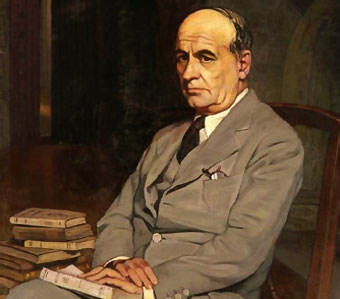
Enfin, mon « conservatisme révolutionnaire » ne se limite pas à l’espace linguistique germanophone, même si celui-ci est, quantitativement, le plus important en Europe, vu que l’allemand est la langue la plus parlée en Europe à l’est de l’espace russophone et est la langue philosophique par excellence, héritière du grec antique, le véhicule de bon nombre d’innovations intellectuelles depuis la moitié du 19ème siècle ; il fut la langue vernaculaire de tous les territoires entre Berlin et Moscou, de la Baltique à la Mer Noire et dans tout l’espace danubien de l’ancien Empire austro-hongrois. L’Espagne, en la personne du germanisant José Ortega y Gasset, recèle des traditions politiques très intéressantes. L’Amérique latine a beaucoup de leçons, claires et pragmatiques, à nous apprendre. L’Italie mérite toute sa place et peut se glorifier d’avoir une tradition « conservatrice-révolutionnaire », elle aussi, analysée notamment par Maurizio Veneziani (cf. La rivoluzione conservatrice in Italia. Genesi e sviluppo della ideologia italiana, Milano, SugarCo, 1987.; 1994. ISBN 88-7198-311-4; 2012. ISBN 978-88-7198-631-9 ; et : L'antinovecento. Il sale di fine millennio, Milano, Leonardo, 1996. ISBN 88-04-40843-X ). Le monde slave, qui m’est plus difficilement accessible ou seulement par des études en d’autres langues romanes ou germaniques, reste un continent immense à découvrir ou redécouvrir. Le chantier est inépuisable.
- Pouvez-vous présenter vos différents travaux sur le courant de la RC, au sein du GRECE, puis dans vos revues Vouloir et Synergies Européennes? Pourquoi avoir voulu porter cette galaxie intellectuelle à la connaissance du public (et quel public?) ?
Mes travaux sur la « révolution conservatrice » allemande sont consignés dans mon recueil paru aux éditions du Lore. Il y a certes d’innombrables traductions disséminées dans les quelque deux cents fascicules d’Orientations, Vouloir, Nouvelles de Synergies européennes, Au fil de l’épée, etc. Un numéro assez copieux de Vouloir a été consacré au sujet, de même qu’un autre à la personnalité d’Ernst Jünger à l’occasion de son centième anniversaire. Mes travaux ont donc été surtout auto-publiés dans les revues soutenues par l’E.R.O.E. de Jean van der Taelen, par « Synergies Européennes » (Gilbert Sincyr, Prof. Jean-Paul Allard, Alessandra Colla, etc.) et par l’Association « Minerve » de Robert Keil, avec l’appui d’André Wolff à Metz. A part Alessandra Colla et moi-même, tous sont aujourd’hui décédés. Au G.R.E.C.E., où j’ai surtout été personna non grata pendant des décennies, à part entre 1979 et 1981 et 1989 et 1992, j’ai publié un article sur Henri De Man dans Etudes & Recherches, un article sur Heidegger dans Nouvelle école, un article sur Ortega y Gasset dans Eléments (qui a été caviardé sous prétexte que la référence majeure en était l’étude du Prof. Walravens de l’Université de Louvain et que ce philosophe hispaniste flamand était un ecclésiastique !!). Enfin, en 1981 toujours, j’ai co-rédigé un article sur Carl Schmitt avec Guillaume Faye pour Eléments. C’est bien peu de chose. Et tout cela remonte à plus de trente-cinq ans. J’ai prononcé deux conférences relatives à la révolution conservatrice allemande dans le cadre du G.R.E.C.E. : l’une en 1989 sur la postmodernité vue par Wolfgang Welsch dont l’ouvrage avait été chaleureusement recommandé par Mohler dans les colonnes de Criticon. Cette conférence a rencontré l’incompréhension de la majorité des stagiaires présents et une franche hostilité parce que Welsch, Mohler et moi-même avions cité positivement « le Juif Derida-da » (!). L’autre conférence concernait Friedrich-Georg Jünger et était destinée à l’Université d’été 1991. J’avais le sobriquet de « trotskiste » du mouvement ; j’ai récolté celui d’« écolo » après cette présentation succincte du frère d’Ernst Jünger, qui avait particulièrement déplu à un mécanicien-dentiste, membre de la maîtrise du G.R.E.C.E. et, à ses heures, triste chansonnier à la voix rauque et brisée et aux paroles d’une stupidité affligeante.

Le gros de mes études sur la révolution conservatrice a été commandité par le Prof. Jean-François Mattéi pour le compte des Presses Universitaires de France. Ce travail m’a permis de me plonger pendant huit longs mois dans les archives de l’Albertine, la bibliothèque royale de Belgique, très riche en ouvrages allemands, tant le Kaiser en 1914 que le Führer en 1940 s’étaient montrés généreux dans l’espoir de « re-germaniser » le pays. Des wagons entiers de bouquins suivaient les troupes de la Reichswehr et de la Wehrmacht. Personne ne lit plus ces archives depuis 1918 et 1945.
Vous me demandez quel public était visé ? Dès le départ, dès notre groupe informel d’étudiants bruxellois des années 1975-1981, nous n’avions aucune illusion quant au public dit de « droite » (pour autant que ce terme ait une signification en Belgique, comme le soulignait déjà le Prof. Stengers de l’Université Libre de Bruxelles, dans un ouvrage collectif aujourd’hui épuisé et intitulé The European Right). Nous nous adressions à des semblables, à des curieux comme nous, à des inclassables. L’analyse du fichier des abonnés aux revues le prouve : il y avait certes dans cette liste des hommes et des femmes rencontrés lors de colloques du G.R.E.C.E. ou d’autres initiatives mais l’immense majorité était composée d’inconnus, de personnes que nous n’avions jamais vues ou qui se sont confinées dans une discrétion absolue. Quant aux raisons de vouloir parler de personnalités oubliées ou décrites comme sulfureuses, elles sont simples : 1) faire éclore une meilleure connaissance de la pensée européenne contemporaine ; 2) faire revenir du refoulé car le refoulé explique en profondeur ce que la surface acceptée signifie en fait (un de nos commensaux étudiait la psychiatrie et s’affichait « lacanien »); 3) remettre en question les établissements en place par un travail généalogique et archéologique sur les idéologies et les idéologèmes, afin de les dégager de leur cangue conformiste. Aujourd’hui, d’excellents travaux universitaires allemands, français, italiens ou anglo-saxons explorent l’époque qui va de 1870 à 1914 ou au-delà. Tous sont contraints de citer des auteurs que les deux après-guerres avaient refoulés.
- Vous publiez régulièrement sur vos blogs Synergies Européennes et Vouloir des articles sur la RC et ses principales figures; qu’est-ce qui, selon vous, reste aujourd’hui d’actualité dans la pensée conservatrice-révolutionnaire?
Les raisons de publier des articles sur les blogs sont les mêmes que celles qui nous amenaient à les publier sur des supports en papier. Si vous me posez la question de savoir ce qui reste d’actualité dans le corpus doctrinal de la révolution conservatrice, je commencerai par vous posez une autre question. Celle-ci : que reste-t-il d’actualité de la première psychanalyse de Freud, de l’architecture Art Nouveau ou Art Déco, de la littérature victorienne, des interprétations successives du marxisme ? Le passé ne s’efface pas contrairement à ce que colporte la vulgate progressiste. Il s’estompe, semble disparaître mais ré-émerge d’une manière ou d’une autre. Pensons par exemple à la culture de la double monarchie austro-hongroise. Un auteur italien contemporain, Claudio Magris, a bien montré que le souvenir de cette construction politique et de la culture qu’elle a véhiculée demeure sous-jacent dans tous les pays qui en ont fait partie. La disparition du Rideau de Fer en 1989 a fait resurgir un passé commun que même le conflit inter-yougoslave n’a pas pu entièrement effacer. De toutes les façons, si nous étions des originaux, que l’on prenait pour des fous, il y a quarante ou trente ans, force est de constater que les travaux universitaires et les productions littéraires ou cinématographiques puisent désormais, en partie, dans ce corpus, pour mille et une raisons ; d’abord pour ne pas avoir à ânonner les poncifs lassants répétés ad nauseam par tous les établissements de la planète. Votre propre mémoire en maîtrise le prouve. Je constate que cet engouement secoue davantage le monde anglo-saxon que les autres espaces linguistiques européens ou autres. Quand je vous parle de la pertinence toujours latente de thématiques révolutionnaires-conservatrices ou autres, datant des années 1920 et 1930, je fais implicitement référence à un auteur anglo-indien, Kris Manjapra, auteur de la copieuse étude Age of Entanglement – German and Indian Intellectuals across Empire (Harvard University Press, 2014). Manjapra montre comment la modernisation de l’Inde et, simultanément, sa marche vers l’indépendance, s’est accompagnée d’une « autre modernité » que celle suggérée par l’Empire britannique, le Raj. Cette « autre modernité » était de facture allemande, tant à la fin du 19ème siècle (avec l’avènement d’une physique nouvelle) que sous la République Fédérale, en passant par les ères wilhelminienne et nationale-socialiste.
Le filon organique qui traverse toute la pensée allemande doit beaucoup aux découvertes successives de la physique pure et de la biologie animale et humaine. Bon nombre de réflexes intellectuels de la « révolution conservatrice » sont tributaires, en amont, de cette nouvelle physique et de cette nouvelle biologie (pas nécessairement darwinienne). Cette scientificité latente de tout le corpus organique a aussi été mise en exergue en France par Georges Gusdorf dans son œuvre monumentale concernant les idéologies des Lumières, le romantisme ou l’histoire de l’herméneutique. Dans cette perspective, les idéologies en place, qui se disent « progressistes », sont des vieilleries anti-scientifiques tandis que l’alternative proposée par les meilleurs des « révolutionnaires conservateurs », qui refusent de se proclamer « progressistes », ont bel et bien un fondement scientifique parce qu’organique. Les étudiants indiens de ces professeurs allemands de physique ou de biologie l’avaient bien compris : ils mettaient en exergue la conformité de cette nouvelle science physique avec les traditions de la mythologie hindoue et les Védas, tout en déployant des techniques visant à assurer, à terme, l’indépendance de leur civilisation. Par ailleurs, Wolfgang Welsch (cf. supra) définit la postmodernité comme une modernité issue des découvertes de la nouvelle physique : Mohler imaginait, après la chute du Rideau de Fer, que la modernité allait sortir des sentiers battus de l’Aufklärung, interprété par le mentor de la RFA, Jürgen Habermas, pour devenir une postmodernité calquée sur cette physique nouvelle qui avait généré les impulsions des révolutionnaires conservateurs. La postmodernité de Mohler, inspirée par la définition qu’en donnait Welsch, n’était rien d’autre que la bonne vieille « révolution conservatrice » sous des oripeaux nouveaux, « nominalistes » dans le sens où ils s’avéraient plus souples et plus plastiques que les rigidités substantialistes des philosophies scolastiques ou dégénérées en scolastique. Rien de cette transition ardemment espérée ne s’est passé et ce que l’on appelle aujourd’hui la « postmodernité » n’est qu’un carnaval terne et sans ressort, que Philippe Muray nomme le « festivisme ».
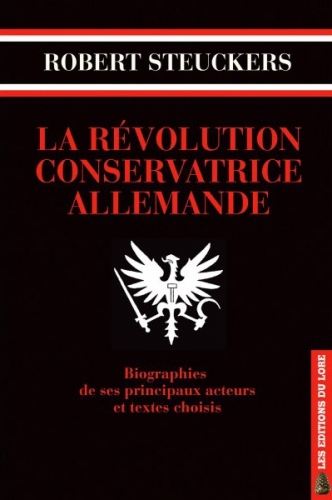
Pour commander l'ouvrage:
Steuckers/Révolution conservatrice
- Vous avez publié en 2014 un ouvrage sur la RC qui regroupe plusieurs portraits de ses principaux auteurs; or, vous proposez un cadre autre que celui retenu par Mohler, en élargissant notamment la chronologie (vous remontez jusque dans les années 1875, et intégrez à la fois le courant nietzschéen et l’école allemande de géopolitique). Pourquoi cette nouvelle approche élargie? Quels sont les points forts et les points faibles de la typologie et de la chronologie retenues par Mohler?
Je ne propose nullement un cadre autre que celui retenu par Mohler, non pas dans les années 1950, quand il travaillait à sa thèse de doctorat sous la houlette de Karl Jaspers mais dans les années 1980, quand il lisait les thèses sur la France d’avant 1914 de Zeev Sternhell. Dans sa recension du livre de Sternhell, La droite révolutionnaire, pour la revue munichoise Criticon du Baron Caspar von Schrenck-Notzing, Mohler applaudit à l’idée d’élargir l’espace temporel de la révolution conservatrice. Ensuite, il ne faut pas oublier que Moeller van den Bruck, après la défaite allemande de 1918, évoque, avec l’Alsacien Stadtler, l’idée d’imiter les Français après leur défaite de 1871 : créer des clubs, des revues, des cénacles qui ne pensent qu’à une chose, la revanche. Or cet antécédent français est justement cet espace idéologique rupturaliste que décrit Sternhell dans La droite révolutionnaire. Moeller van den Bruck comme Mohler sont conscients de l’impolitisme foncier des Allemands. Se référer tout à la fois aux conquêtes scientifiques allemandes, qui n’ont été d’aucune utilité dans la mobilisation totale des forces nationales pendant la Grande Guerre, et à l’hyper-politisme des Français entre 1871 et 1914 permettra de sortir de l’impasse imposée à Versailles en 1919, pensaient Moeller van den Bruck et les membres du « Juni Klub ». Aujourd’hui, c’est l’Europe tout entière qui doit se repenser au-delà de toutes les humiliations qu’elle a subies. En France aujourd’hui, c’est aussi à Bergson et à Péguy voire à Sorel que se réfère un Patrick Buisson pour pallier le suicide français décrit par Zemmour : donc des références d’avant 1914 ! En proposant d’élargir la plage temporelle des études sur l’idéologie allemande, je n’ai nullement été à l’encontre de Mohler mais, bien au contraire, j’ai abondé dans son sens : j’ai travaillé à l’élargissement qu’il appelait de ses voeux. Il n’y a donc pas lieu, pour moi, d’évoquer des points forts ou faibles dans son argumentaire.
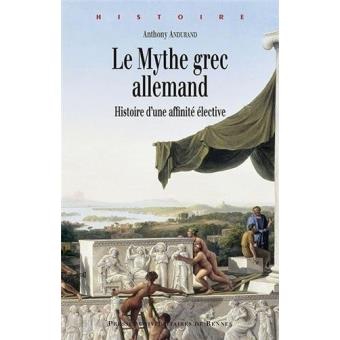
- Quel regard portez-vous concernant l’actualité des publications sur la RC, universitaires ou militantes (notamment dans les milieux nationaux-révolutionnaires et ce qu’il reste de la « Nouvelle Droite ») dans l’espace francophone?
Les publications universitaires sont toutes excellentes, à condition qu’elles ne véhiculent pas les simplismes des idéologies dominantes à l’encontre des pensées nées entre 1870 et aujourd’hui. Sur ma table de travail, outre les livres allemands d’exégèse sur l’œuvre d’Ernst Jünger et le livre de Manjapra (cf. supra), il y a celui d’Anthony Andurand, Le mythe grec allemand – Histoire d’une affinité élective, Presses universitaires de Rennes (2013). Les milieux nationaux-révolutionnaires, tels que nous les avons connus du temps d’un Jean-Gilles Malliarakis ou d’un Christian Bouchet, ont virtuellement cessé d’exister. D’autres ont pris le relais, comme « Dissidence française » de Vincent Vauclin. Ces mouvements pouvaient ou peuvent certes susciter un engouement ou des vocations mais leur tâche n’est pas de faire œuvre scientifique en ce domaine. Ils suscitent indubitablement un intérêt pour les questions révolutionnaires-conservatrices, le même que celui qui avait animé un Dominique Venner pour la geste d’Ernst von Salomon et des « réprouvés » des années 1920 en Silésie ou dans les Pays Baltes. Mais, lato sensu, la révolution conservatrice ne se limite pas aux épopées « soldatiques » comme je l’explique dans quelques chapitres de mon livre sur le sujet.
Quant à la « nouvelle droite », du moins son canal historique, elle a rejeté et exclu tous ses germanistes (Locchi, Mudry, Allard, moi-même) et son meilleur italianiste (Baillet), en adoptant le comportement des « rombières » fustigées par notre Abbé d’antan : elle nous a tissé une réputation de fainéant, de toqué, etc. avec la même hypocrisie que « celles qui tricotaient des bas pour les pauvres ». Heureusement que Jean Haudry a chaperonné la confection des derniers numéros de Nouvelle école. Quant au reste des productions, à part un ouvrage de leur chef de file sur quatre figures de la révolution conservatrice, je ne vois rien de bien particulier qui ait été publié. L’étude de cette période de l’histoire intellectuelle germanique appartient désormais à l’université. Et à elle seule. Ma tâche de « perroquet » (Maurras) et d’instituteur (Niekisch) est de répercuter bravement ce que ces savants vont produire en plus hauts lieux.
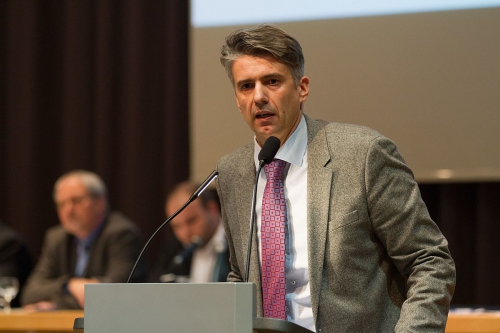

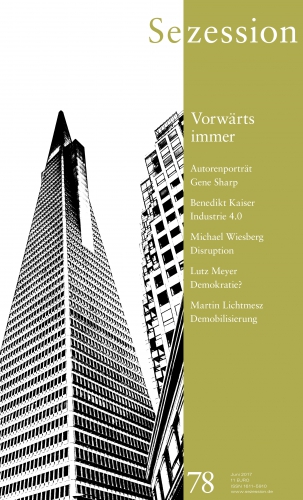
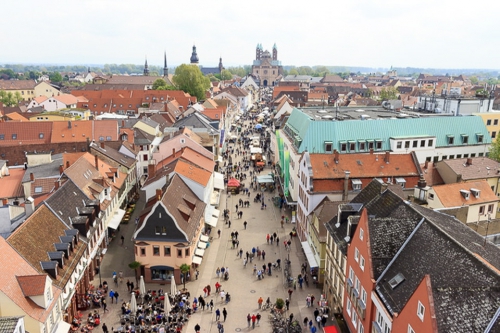



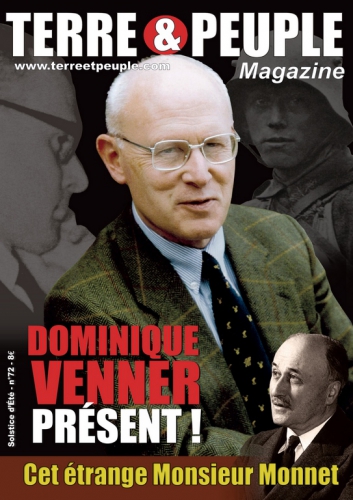
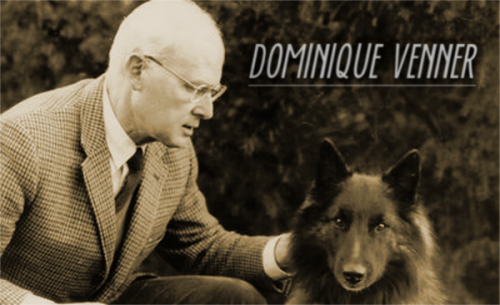
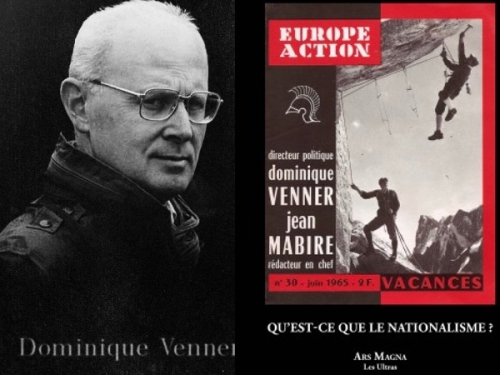

 del.icio.us
del.icio.us
 Digg
Digg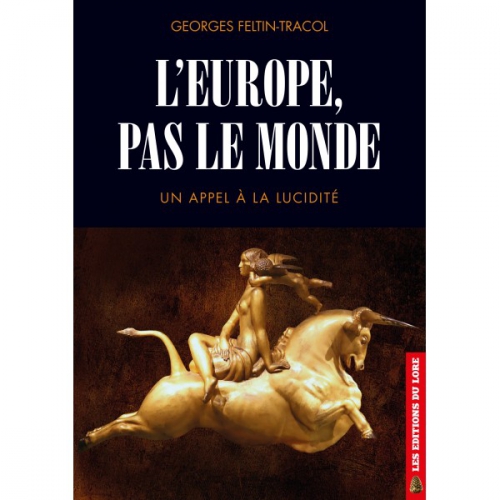
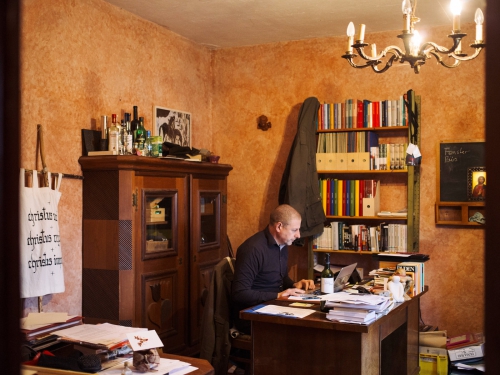


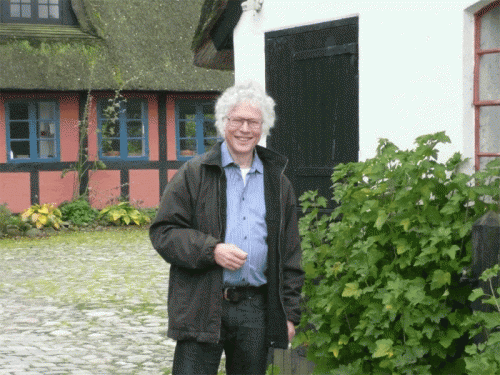

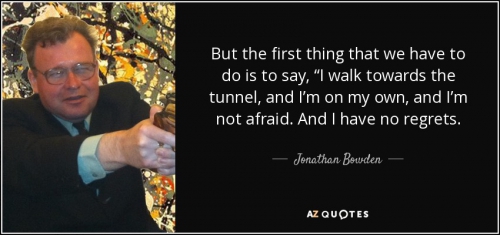
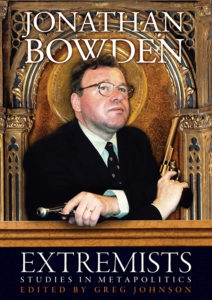
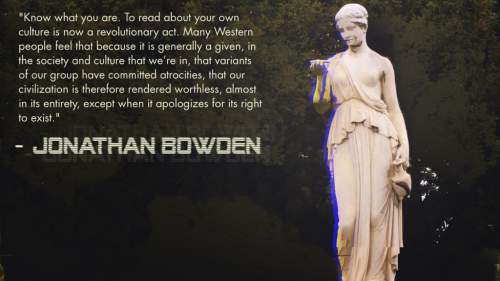
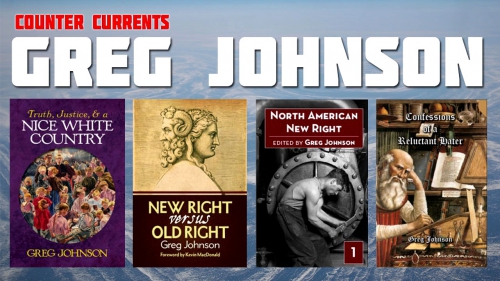















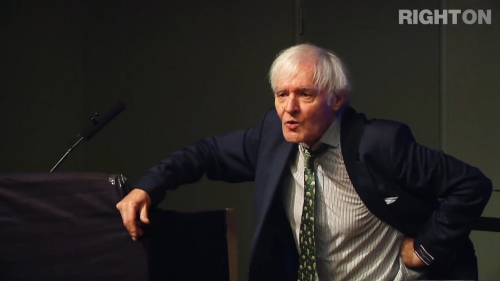

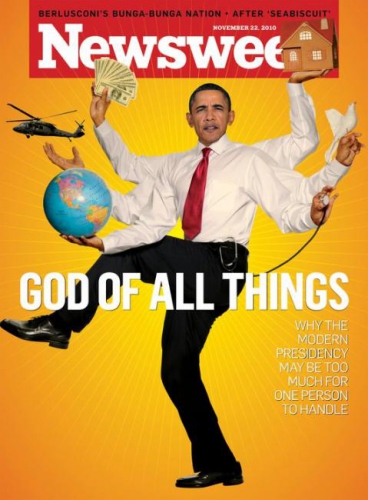


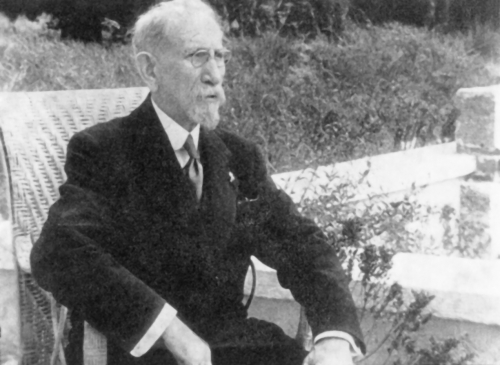
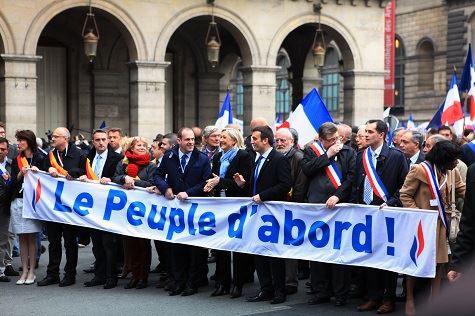
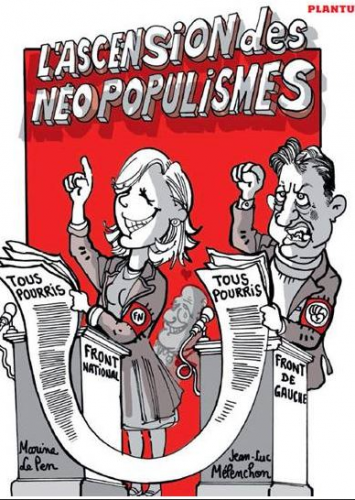 Professor Tarchi, l'avanzata del populismo sembrava inarrestabile.
Professor Tarchi, l'avanzata del populismo sembrava inarrestabile. 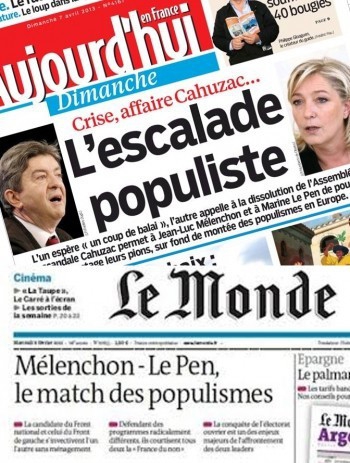 Il momento che sta vivendo l'Europa sembra essere socialmente travagliato. Eppure in Olanda e in Francia, alla fine, ha vinto il moderatismo. Perchè?
Il momento che sta vivendo l'Europa sembra essere socialmente travagliato. Eppure in Olanda e in Francia, alla fine, ha vinto il moderatismo. Perchè?
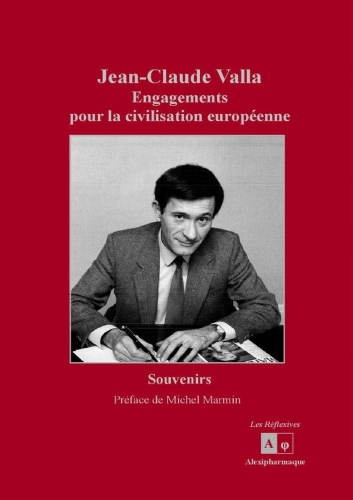
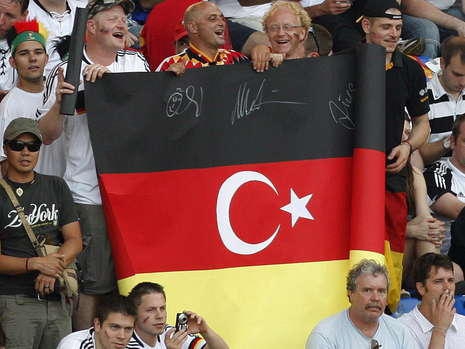
 Militariste ou pacifiste, raciste ou antiraciste, militariste orgueilleuse ou masochiste culpabilisée, atlantiste américanolâtre (l’ex RFA), ou stalinienne et néo-hitlérienne (l’ex RDA), la politique allemande a toujours été catastrophique. Mme Merkel, en ouvrant les frontières de l’Europe aux ”migrants” envahisseurs est dans la continuité de cette irresponsabilité allemande. Cette dernière n’est pas seulement nuisible à l’Europe mais aussi au peuple allemand lui–même
Militariste ou pacifiste, raciste ou antiraciste, militariste orgueilleuse ou masochiste culpabilisée, atlantiste américanolâtre (l’ex RFA), ou stalinienne et néo-hitlérienne (l’ex RDA), la politique allemande a toujours été catastrophique. Mme Merkel, en ouvrant les frontières de l’Europe aux ”migrants” envahisseurs est dans la continuité de cette irresponsabilité allemande. Cette dernière n’est pas seulement nuisible à l’Europe mais aussi au peuple allemand lui–même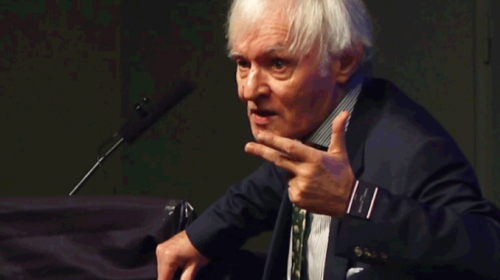

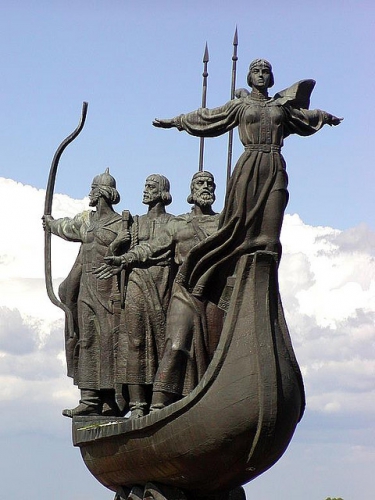



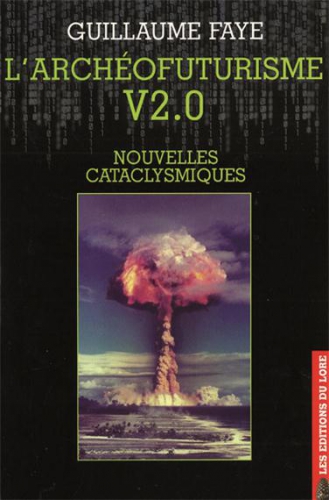 The book’s vision of a non-spiritual, titanic, and only partially scientifically developed (and also part degenerate) future leads you into a not-so-uncommon “feel bad” territory, as is not unknown in contemporary science fiction. Dystopia, the fall of civilization, doom and gloom. So what is there to say about it all? We’d say: Faye is a debutant of fiction. (Okay, the first Archeofuturism book indeed had an appendix that was a kind of short story, so already there the author had signaled the viability of fiction for his purposes.) Nevertheless, he tells his well-crafted story with confidence and wit, so we shouldn’t complain too much. We’d even like to read more Faye fiction, perhaps stories set in twentieth-century France or some such theme, given the allure of the setting of the first episode in this book.
The book’s vision of a non-spiritual, titanic, and only partially scientifically developed (and also part degenerate) future leads you into a not-so-uncommon “feel bad” territory, as is not unknown in contemporary science fiction. Dystopia, the fall of civilization, doom and gloom. So what is there to say about it all? We’d say: Faye is a debutant of fiction. (Okay, the first Archeofuturism book indeed had an appendix that was a kind of short story, so already there the author had signaled the viability of fiction for his purposes.) Nevertheless, he tells his well-crafted story with confidence and wit, so we shouldn’t complain too much. We’d even like to read more Faye fiction, perhaps stories set in twentieth-century France or some such theme, given the allure of the setting of the first episode in this book.

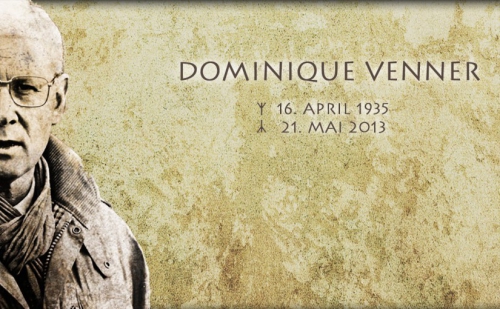
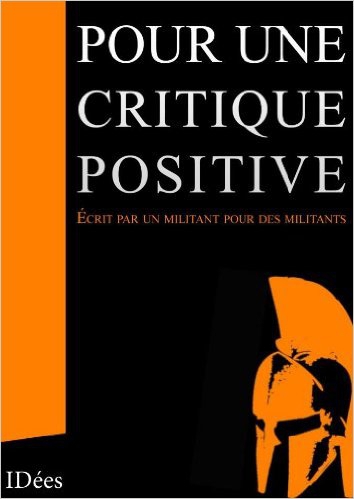
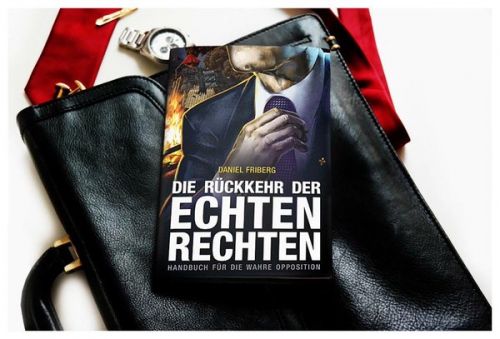

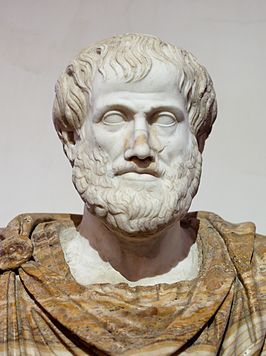 Robert Dragan esquisse un portrait d'Aristote, père de la philosophie réaliste classique (ou peut-être simplement interprète d'une tradition ancienne européenne, car il ne parle jamais à la première personne). On oppose cette pensée à la philosophie idéaliste qui -la science ayant pu entre temps développer la connaissance de la nature- a vérifié que notre connaissance de la réalité du monde est relative, car elle passe par le prisme restreint de notre perception et de notre raison. Rien ne pourrait être certain car la réalité nous est inconnaissable. La théologie scolastique de l'Eglise (fille bâtarde, selon Voltaire, de la philosophie d'Aristote, mal traduite) revendiquait au contraire le réalisme aristotélicien : notre connaissance de l'univers, imparfaite, est néanmoins réelle. Le réaliste en induit une morale calquée sur l'adaptation au réel. L'idéaliste moderniste privilégie le sujet, jusqu'à l'amoralité comprise.
Robert Dragan esquisse un portrait d'Aristote, père de la philosophie réaliste classique (ou peut-être simplement interprète d'une tradition ancienne européenne, car il ne parle jamais à la première personne). On oppose cette pensée à la philosophie idéaliste qui -la science ayant pu entre temps développer la connaissance de la nature- a vérifié que notre connaissance de la réalité du monde est relative, car elle passe par le prisme restreint de notre perception et de notre raison. Rien ne pourrait être certain car la réalité nous est inconnaissable. La théologie scolastique de l'Eglise (fille bâtarde, selon Voltaire, de la philosophie d'Aristote, mal traduite) revendiquait au contraire le réalisme aristotélicien : notre connaissance de l'univers, imparfaite, est néanmoins réelle. Le réaliste en induit une morale calquée sur l'adaptation au réel. L'idéaliste moderniste privilégie le sujet, jusqu'à l'amoralité comprise. 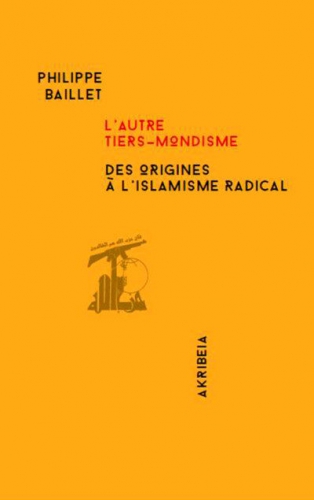 Alain Cagnat livre une passionnante recension du livre de l'ami Philippe Baillet, 'L'autre Tiers-Mondisme, Des origines à l'islam radical', paru chez Akribeia. Notre ami est co-fondateur de la revue Totalité. L'ouvrage analyse une série de personnalités qui se sont révélées réfractaires à la bipolarité URSS/USA, mais démarquées des non-alignés, communistes, trotskistes ou chrétiens progressistes. Il s'agit de :
Alain Cagnat livre une passionnante recension du livre de l'ami Philippe Baillet, 'L'autre Tiers-Mondisme, Des origines à l'islam radical', paru chez Akribeia. Notre ami est co-fondateur de la revue Totalité. L'ouvrage analyse une série de personnalités qui se sont révélées réfractaires à la bipolarité URSS/USA, mais démarquées des non-alignés, communistes, trotskistes ou chrétiens progressistes. Il s'agit de :

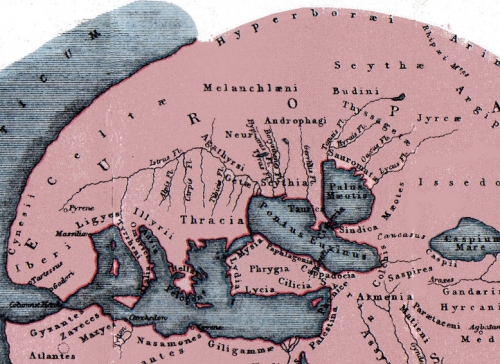
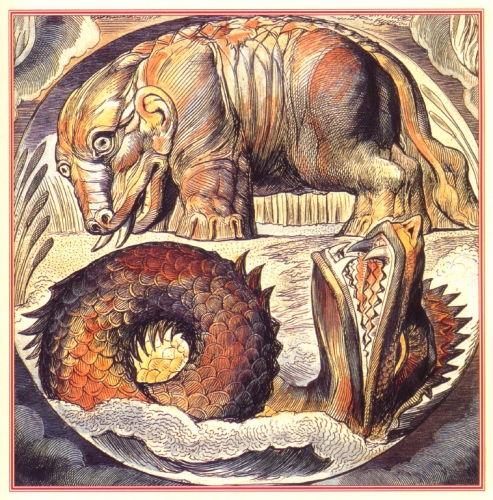
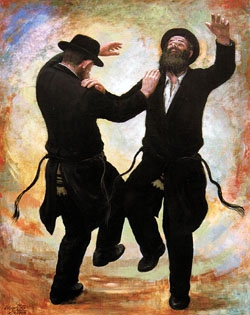 Quant au judaïsme, non seulement il n’échapperait pas à cette opposition interne, mais celle-ci se retrouverait aussi dans les formes séculières de la pensée juive. Douguine analyse les branches mystiques du judaïsme (hassidisme, sabbataïsme, kabbalisme) comme l’expression de l’aspect terrestre de cette religion. Au contraire, le talmudisme en représenterait l’aspect atlantiste notamment par l’accent mis sur la rigueur dogmatique et le rationalisme. Par ailleurs, rappelant l’influence du messianisme juif sur le développement du marxisme et du bolchevisme, Douguine voit dans ces derniers des formes séculières du judaïsme terrestre. Au contraire, le judaïsme atlantiste sécularisé aurait contribué à l’essor du capitalisme et de l’esprit bourgeois. Le géopoliticien russe voit dans cette tension interne au judaïsme l’explication d’un récurrent « antisémitisme juif ». Les propos de Karl Marx, affirmant notamment que l’argent serait le Dieu profane du judaïsme (La question juive), seraient l’incarnation empirique du juif mystique s’attaquant au juif talmudiste, soit une émanation de la tradition contre une forme de la modernité.
Quant au judaïsme, non seulement il n’échapperait pas à cette opposition interne, mais celle-ci se retrouverait aussi dans les formes séculières de la pensée juive. Douguine analyse les branches mystiques du judaïsme (hassidisme, sabbataïsme, kabbalisme) comme l’expression de l’aspect terrestre de cette religion. Au contraire, le talmudisme en représenterait l’aspect atlantiste notamment par l’accent mis sur la rigueur dogmatique et le rationalisme. Par ailleurs, rappelant l’influence du messianisme juif sur le développement du marxisme et du bolchevisme, Douguine voit dans ces derniers des formes séculières du judaïsme terrestre. Au contraire, le judaïsme atlantiste sécularisé aurait contribué à l’essor du capitalisme et de l’esprit bourgeois. Le géopoliticien russe voit dans cette tension interne au judaïsme l’explication d’un récurrent « antisémitisme juif ». Les propos de Karl Marx, affirmant notamment que l’argent serait le Dieu profane du judaïsme (La question juive), seraient l’incarnation empirique du juif mystique s’attaquant au juif talmudiste, soit une émanation de la tradition contre une forme de la modernité.